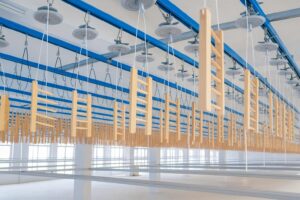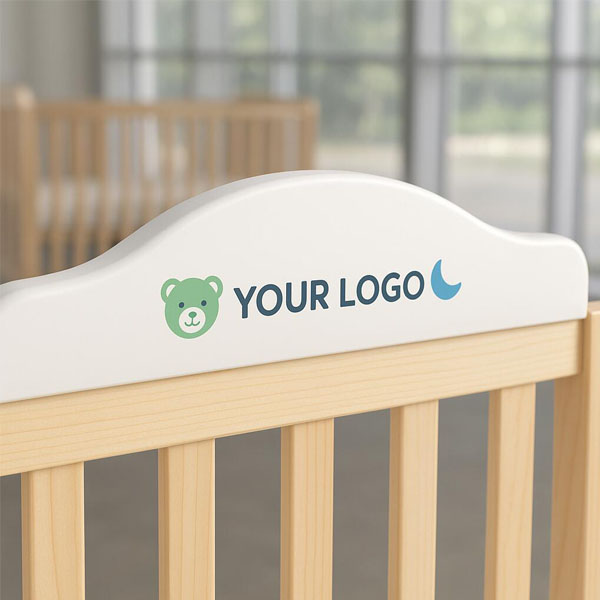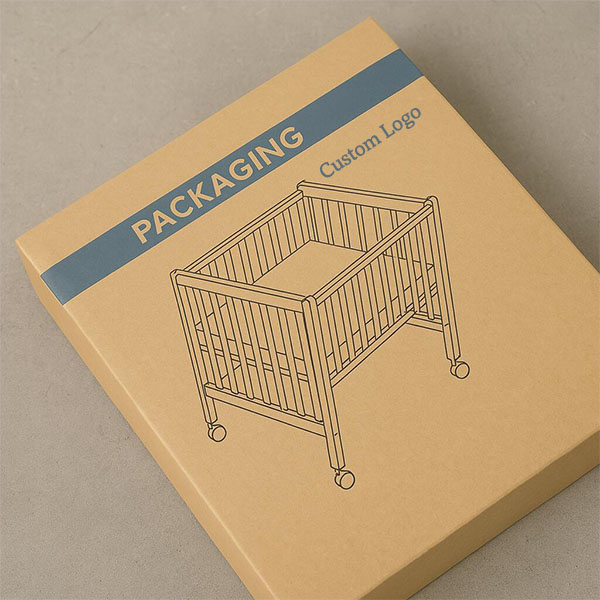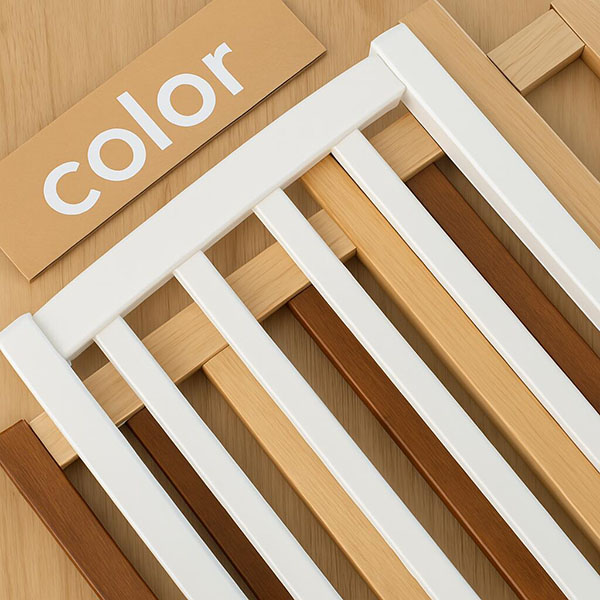Is a wooden crib safe for babies?
You love the timeless look of a wooden crib, but you worry. Could it mean splinters? Chipped paint? Is it as safe as other materials? This doubt can take the joy out of choosing.
Yes, a new wooden crib is one of the safest choices you can make, as long as it is certified to meet modern safety standards. These standards regulate everything from paint toxicity to slat spacing and structural integrity, ensuring a secure environment.
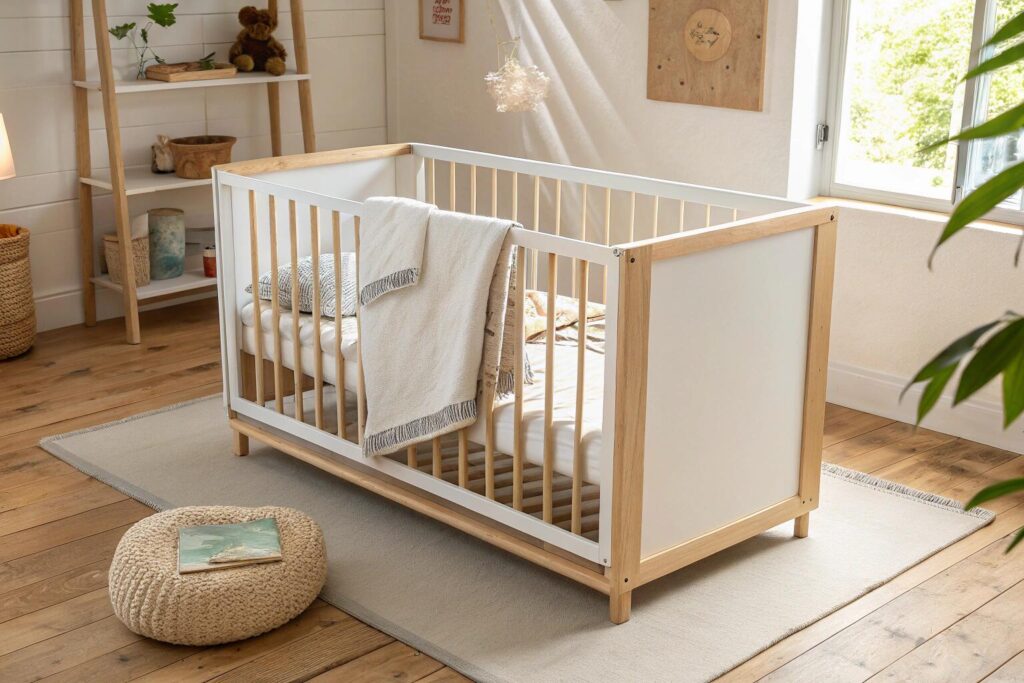
As someone who has worked with wood my entire career, I believe it’s the best material for baby furniture. It’s natural, durable, and beautiful. But my belief isn’t enough; proof is in the process. Today’s parents, the ones I build for, want more than just a product. They want a story of safety and care. They are buying an experience—the peace of mind of "seeing it’s safe" and the joy of "it looks beautiful in photos." My job is to deliver on both.
Are old wooden cribs safe?
A well-meaning relative offers you a vintage wooden crib. It’s a sentimental gesture and saves you money, but you hesitate. Can something that old truly be safe for your baby today?
No, old wooden cribs are not safe and should never be used. Safety regulations have changed dramatically. Old cribs often have dangerous features like drop-side rails, incorrect slat spacing, and potentially toxic lead-based paint.
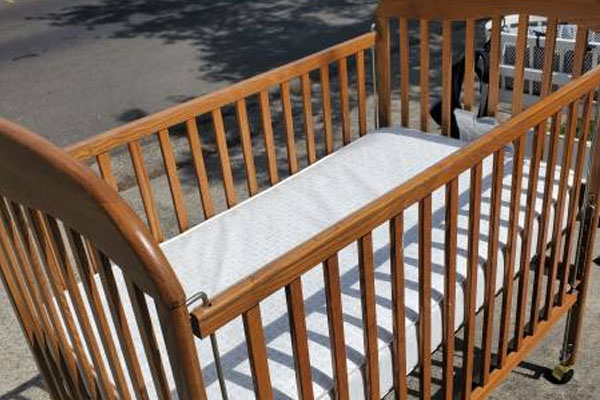
I would refuse to even have an old crib in my factory, let alone ship one. The design flaws are simply too dangerous by today’s standards. The U.S. Consumer Product Safety Commission (CPSC) has updated regulations many times to prevent tragic accidents. Parents who choose our cribs are paying for this modern engineering and certified safety. They understand that a crib isn’t just a box to hold a baby; it’s a piece of safety equipment. The difference between a crib from 1990 and one from today is the difference between a car with no airbags and one with a full suite of modern safety features.
| Feature | Old Cribs (Pre-2011) | Modern Cribs | Safety Risk of Old Cribs |
|---|---|---|---|
| Side Rails | Often had "drop-sides" | Must be fixed | Hardware failure, creating a deadly gap |
| Slat Spacing | Could be wide | Max 2 3/8 inches | Head and body entrapment |
| Paint/Finish | May contain lead | Must be non-toxic | Lead poisoning from chewing/biting |
| Hardware | Less stringent standards | Strong, durable, tested | Breakage, sharp points, structural collapse |
How to stop baby from biting a wooden crib?
Your teething baby has turned their beautiful wooden crib into a chew toy. You’re worried about them ingesting paint chips or getting splinters, and you want to protect your investment.
To stop a baby from biting a wooden crib, use a crib rail cover or guard. These are made from fabric or food-grade silicone that wraps around the top rails, providing a safe and soft surface for your baby to chew on.
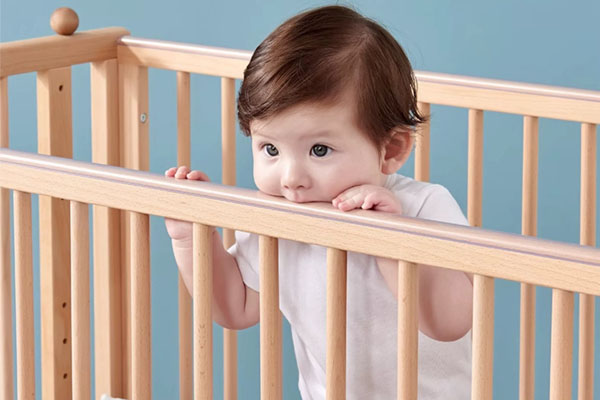
This is a very common phase, and we design with it in mind. First, a modern crib from a reputable brand already uses non-toxic, baby-safe finishes. So, while you don’t want them chewing the wood, the risk from the finish itself is minimal. However, to protect both your baby’s gums and the crib’s wood, a rail guard is the perfect solution. When choosing one, make sure it attaches securely with ties or snaps. Avoid anything with long strings or parts that could become loose. A good rail guard is a small investment that provides a big solution. It allows your baby to soothe their teething pain safely while preserving the crib for a second child or for conversion into a toddler bed. It’s a practical detail that supports the crib’s long-term value.
What is the name of the thing that hangs over a crib?
You’ve seen them in every picture of a perfect nursery: a cute, spinning decoration hanging over the crib. You want one, but you don’t even know what to call it to search for it.
The decorative mobile that hangs over a crib is called a "crib mobile." Its purpose is to provide gentle visual and auditory stimulation for a newborn baby, helping to soothe them and encourage visual tracking skills.
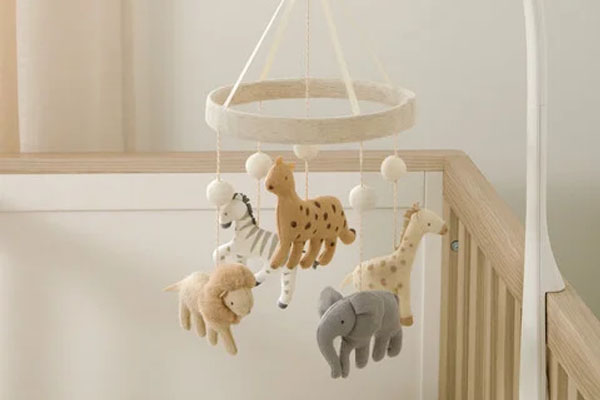
Crib mobiles are a wonderful accessory, but safety is everything. As a manufacturer, I always advise my brand partners to include very clear safety warnings with these products. A mobile should be securely attached to the crib side or ceiling, well out of the baby’s reach. The moment a baby can push up on their hands and knees or sit up (usually around 4-5 months), the mobile must be removed immediately. At that stage, it transforms from a soothing toy into a potential entanglement and choking hazard. So, while they are a beautiful part of the nursery aesthetic that so many parents desire, their use is temporary and requires close attention to the baby’s developmental milestones. It’s another example of how safety and style must work hand-in-hand.
What is the purpose of a crib canopy?
You see dreamy photos of cribs draped in flowing fabric. A canopy looks incredibly beautiful, but you wonder if it serves a real purpose or if it’s just for show.
A crib canopy’s primary purpose is aesthetic. It creates a cozy, enclosed feeling and contributes to a specific nursery design style. However, they are not recommended by safety experts due to serious suffocation and strangulation risks.
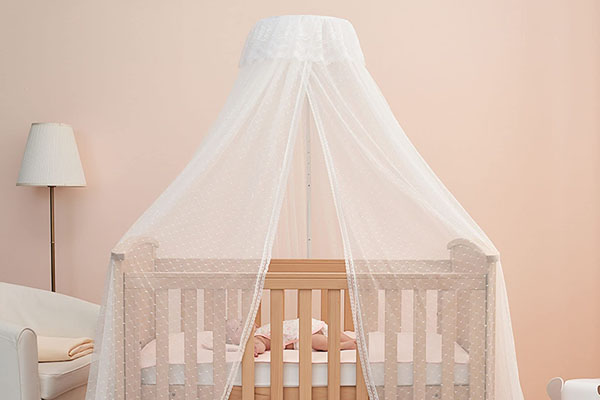
While these look stunning in styled photoshoots, I strongly advise parents against using them. For professional buyers like Sophia, a canopy is often a non-starter because of the liability. The fabric can fall into the crib, posing a suffocation risk. As the baby gets older, they can pull the fabric through the slats, creating a strangulation hazard. Canopies also collect a lot of dust, which isn’t great for a baby’s developing respiratory system. While old beds had canopies for practical reasons—to block drafts and falling dirt in old houses—a modern crib canopy is purely decorative, and its risks far outweigh its visual benefits. The safest crib is a bare crib: just a firm mattress with a fitted sheet. This "look" of safety is the most beautiful style of all.
Do you need a crib guard?
You hear about all sorts of accessories and wonder what is truly necessary. Is a "crib guard" an essential safety item or just another product to buy? The terminology is confusing.
You do not need one, but a crib rail guard (for teething) is a useful, safe accessory. However, you must avoid traditional, padded crib bumper pads, which are dangerous and now banned for sale in the U.S.
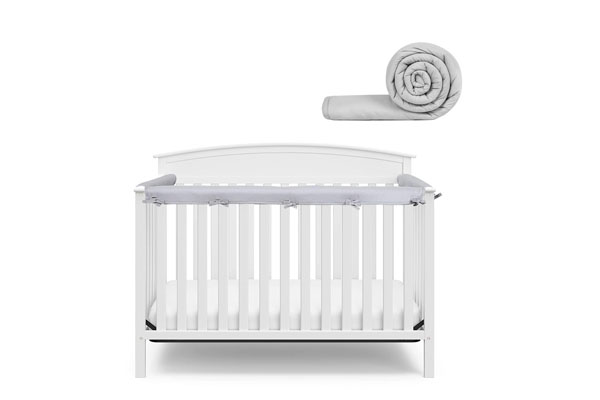
It is critical to understand the difference between these two products. They are often confused, but their impact on safety is opposite. A rail guard protects the top rail from a teething baby. A bumper pad is a soft cushion that lines the inside of the crib. Bumper pads were once thought to protect a baby from bumping their head, but research proved they do little to prevent serious injury and instead create a massive risk for suffocation and SIDS. This led to the Safe Sleep for Babies Act of 2021, which banned them. As a manufacturer, we echo this safety advice constantly. A safe crib is an empty crib.
| Product | Purpose | Safety Status |
|---|---|---|
| Crib Rail Guard | Protects top rail from teething | Safe when installed correctly |
| Crib Bumper Pad | Lines the inside of the crib | Unsafe & Banned (Suffocation risk) |
A final question you might have.
What is a crib dock used for?
You see these soft, portable baby loungers, often called docks or nests, and wonder if you can put them in the crib for extra comfort. The answer is an emphatic no. A crib dock is for supervised lounging on a flat surface outside of the crib. Placing soft bedding like this inside a crib violates safe sleep rules and greatly increases the risk of suffocation.
Conclusion
A modern wooden crib is a beautiful and safe foundation for your nursery. By choosing certified products and avoiding unsafe accessories, you can create a space that is both stylish and secure.

